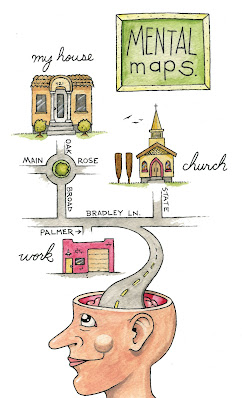To truly flourish in life and realize your ambitions, the foundational quality you must cultivate is grit. This resilience relies on three pillars: committing to deliberate practice, refining your mental maps, and embracing the patience found in moments of boredom.
Now, let's
journey back to the eighteenth century, to the era of the musical genius
Mozart. Widely believed to possess the innate gift of perfect pitch, the
ability to identify musical notes without external reference, Mozart's early
accomplishments were nothing short of prodigious. By age 5, he effortlessly
played the piano and the violin; at 8, he composed his inaugural symphony, and
by 17, he graced the Salzburg court with his musical prowess. At 21, Mozart
crafted one of his early masterpieces, the enchanting Piano Concerto No.9,
captivating the aristocracy of his time. Yet, can we solely attribute Mozart's
meteoric rise to fame to his purported perfect pitch and natural talent?
Enter
Anders Ericsson, a revered Swedish psychologist and academic, who devoted his
life to unraveling the mysteries of expertise and human performance. His quest
centered on answering a fundamental question: What sets apart individuals who
achieve world-class mastery in diverse fields such as music, dance, medicine,
or sports?
To
deconstruct Mozart's perfect pitch, Ericsson's study delved into the
experiences of children aged 2 to 6 enrolled in a music school in Tokyo.
Initially lacking perfect pitch, approximately 88% of these children acquired
this skill within a year of dedicated practice, underscoring the transformative
power of deliberate effort.
Delving
into Mozart's seemingly inherent talent, it becomes apparent that his exposure
to diverse European cities like Vienna, Munich, Prague, and Paris significantly
shaped his musical style. His encounter with the German composer John Christian
Bach in London left an indelible mark on his concerto craftsmanship.
Furthermore, Mozart's father, Leopold, played a pivotal role in his musical
education. Leopold's treatise on violin playing, translated into Dutch and
German, coupled with his tested methods on Mozart's elder sister, contributed
significantly to Mozart's early musical prowess.
In essence,
Mozart's journey, when viewed through the lens of Anders Ericsson's insights,
challenges the notion of inherent genius. It underscores the transformative
impact of deliberate practice, mentorship, and exposure on the path to mastery.
Mozart's story serves as a testament to the unparalleled power of grit and the
deliberate pursuit of excellence.
This principle extends beyond the world of music. At an Ivy League university, undergraduates scoring higher on grit outshone their peers in GPA, despite having lower SAT scores. While various factors contribute to resilience in challenging situations, the spotlight on grit is deliberate for two compelling reasons.
Firstly, grit resonates intuitively; its essence is easily grasped. We understand that individuals with grit tend to outperform, more likely to achieve enduring goals. Secondly, grit is measurable. In the wise words of Peter Drucker, "You can't measure what you can't improve." This spotlight on grit encapsulates its intuitive appeal and quantifiable nature, making it a focal point for understanding and enhancing long-term success.
- Engaging in
Deliberate Practice:
Malcolm Gladwell's famed 10,000-hour rule, as highlighted in "Outliers: The Story of Success," suggests that dedicating 20 hours per week for 10 years is a key to mastery. However, the story of Shizuka Arakawa, a Japanese figure skating gold medalist, unveils the essence of deliberate practice. For 19 years, Arakawa persisted in mastering a challenging skating move, enduring falls and pushing her boundaries. Deliberate practice, unlike mere repetition, involves receiving feedback, stepping out of your comfort zone, and tackling areas of weakness.
- Refining
Mental Maps:
Our brains operate with an inherent navigation system called mental maps or images. Just like navigating familiar roads while driving, these maps guide our actions effortlessly. The process of refining mental maps involves adapting to new experiences, akin to driving a rental car in a foreign country. Michael Phelps, the world-record-holding swimmer, provides a prime example. Coach Bob Bowman had Phelps create a mental map of a perfect race, helping him overcome unexpected challenges during the Beijing Olympics in 2008. Perfecting mental maps, however, requires diligence and patience. - Embracing
Boredom:
Even in the realm of sports, boredom poses a challenge. Athletes adhering to monotonous routines often struggle with the monotony. To address this, breaking down larger goals into manageable sub-goals and monitoring progress becomes crucial. A historic study at Harvard University in 1938 underscored the impact of perseverance. Students who endured an arduous treadmill challenge for five minutes exhibited greater psychological well-being over seven decades. Intelligence and talent took a backseat, emphasizing that the ability to endure and cultivate grit is a reliable predictor of future happiness.
In conclusion, the three pillars of grit—deliberate practice, refined mental maps, and embracing boredom—form an interconnected framework for those on the path to mastery. It's not just about the hours invested; it's about the intentional, adaptive, and enduring journey towards excellence.
SOURCE: THE LEAPFROG BY MUKESH SUD, PRIYANK NARAYAN
IMAGE SOURCE: PRINTLER.COM (MOZART), SAYLORDOTORG.GITHUB (MENTAL MAPS), VANTAGE CIRCLE BLOG (BOREDOM)




Comments
Post a Comment